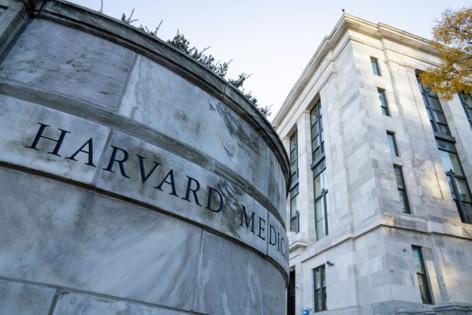Massachusetts' highest court rules lawsuits against Harvard over stolen body parts from morgue can move forward
Published in News & Features
BOSTON — Lawsuits against Harvard in relation to a macabre scheme that led human body parts to be sold out of the morgue for several years may move forward, the Massachusetts Supreme Judicial Court ruled Monday.
“Harvard’s extraordinary failure to adequately supervise the morgue’s operations and properly protect the donated remains in its care exemplifies the kind of ‘peculiarly pervasive noncompliance’ we have said can demonstrate a lack of good faith,” the SJC ruling states.
A Superior Court judge dismissed lawsuits related to the scheme, finding Harvard and the sued parties acted legally within a “good faith” defense.
The SJC partially overturned the decision Monday, allowing suits against both Harvard and the managing director of the Medical School Anatomical Gift Program Mark Cicchetti but not the manager of the Anatomical Gift Program.
“In a macabre scheme spanning several years, Cedric Lodge, the person responsible for the care of cadavers at the Harvard Medical School morgue, dissected, stole, and sold parts of the bodies of individuals who donated their remains for research purposes,” the SJC states.
After a federal criminal indictment was unsealed, “forty-seven plaintiffs, all relatives of individuals whose remains were potentially mishandled and sold,” filed lawsuits against the school and officials in charge of the program.
The lawsuits come after former Harvard Medical School morgue manager Cedric Lodge pleaded guilty to interstate transport of stolen human remains in May. Lodge, of Goffstown, New Hampshire, could face up to 10 years in prison. His wife Denise Lodge and two alleged coconspirators also face charges.
The theft and sale of human remains from the morgue, along with a mortuary in Arkansas, occurred from 2018 through March 2023, according to the court. The remains donated to Harvard, including hands, feet, spines, dissected faces and parts of skulls, went out to a nationwide network of people in person and through online sales.
Harvard has stated the taking of portions of cadavers was conducted without authorities’ knowledge or permission. Bodies donated to the school through the AGP, run out of Harvard Medical School since the 1960s, are typically used for research and educational purposes and cremated, buried or returned to families after use.
Relatives of the dead impacted in the scheme brought twelve lawsuits against Harvard in 2023 and four naming Cicchetti, Lodge’s supervisor, also as a defendant. The lawsuits were consolidated before being dismissed and appealed in the SJC.
While the scheme was ongoing, families’ lawsuits state Harvard should have been aware of the shortcomings in the morgue’s operations and the university disregarded guidance from the American Association of Anatomy.
“The families whose trust in Harvard was so betrayed are thankful for the Court’s careful attention to this important case,” said John Morgan, founder of Morgan & Morgan, and attorney Kathryn Barnett. “Our clients deserve to have their day in court for what they suffered, and we look forward to finally getting some answers from Harvard about this alleged violation.”
Another attorney for plaintiffs in the case called the ruling a “major victory for the families who trusted Harvard with their loved ones’ final wishes.”
“The Supreme Judicial Court recognized that Harvard can’t hide behind immunity when its failure to supervise created the conditions for this appalling abuse,” said attorney Sean Flaherty, a managing partner of Keches Law Group.
In its decision, the SJC states the two defendants are not protected from legal action by the defense they acted in good faith under the Uniform Anatomical Gift Act. The SJC noted though a similar incident of body part theft in a UCLA morgue in the early 2000s, Harvard had “little to no controls in place to prevent this harm from occurring.”
Harvard “ignored or tolerated” red flags, like Lodge’s “license plate describing himself as the ‘Grim-R(eaper),’ which revealed an unprofessional insensitivity given his position in a medical school morgue,” the ruling states.
“(Harvard) had a legal obligation to provide for the dignified treatment and disposal of the donated human remains, and failed miserably in this regard, as Harvard itself recognized,” the SJC states. “Harvard also had a duty to oversee Lodge’s conduct and to place proper controls over the morgue itself – both of which it allegedly disregarded for years.”
Officials from Harvard did not respond to a Herald request for comment.
_____
©2025 MediaNews Group, Inc. Visit at bostonherald.com. Distributed by Tribune Content Agency, LLC.







Comments